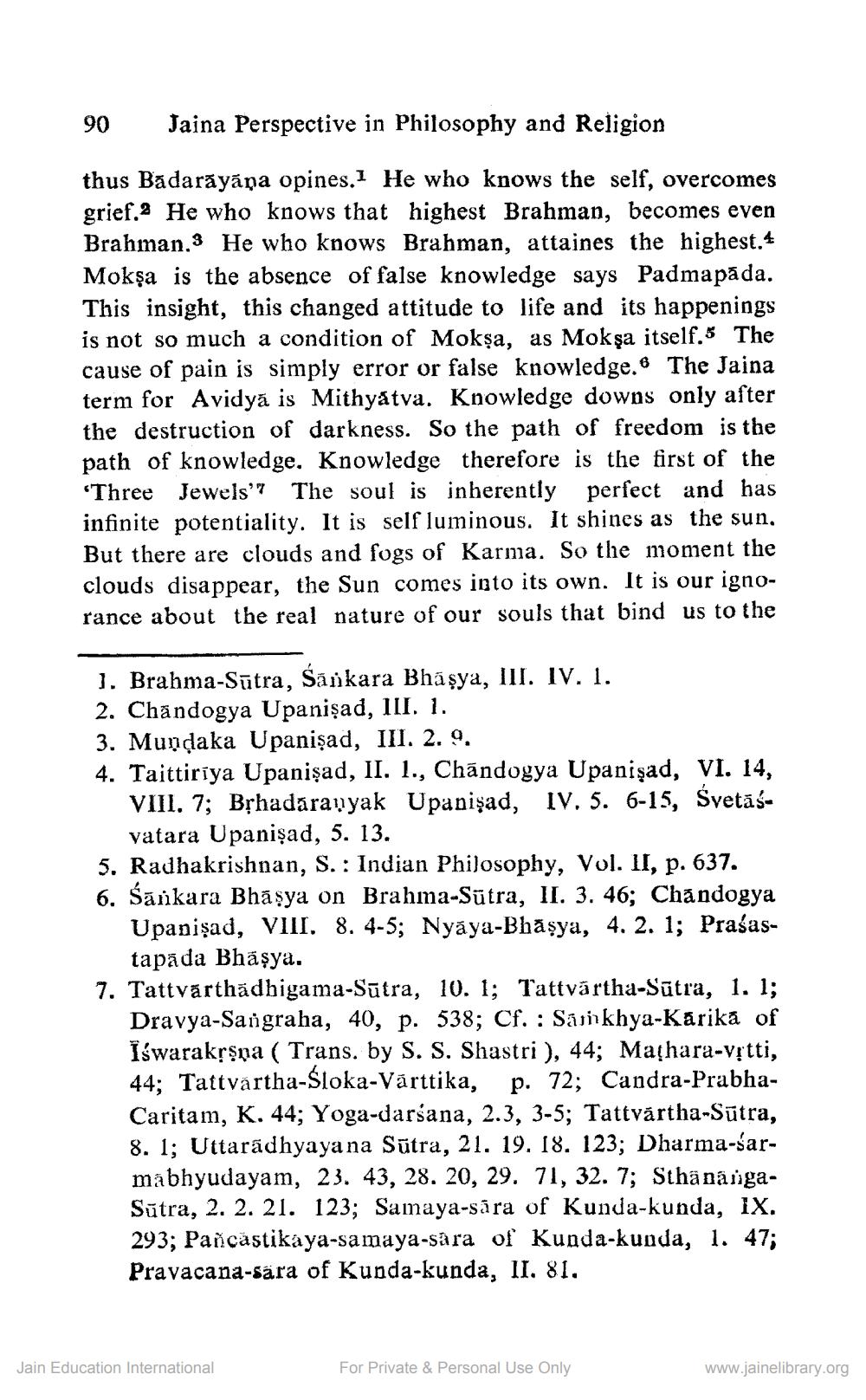________________
90
Jaina Perspective in Philosophy and Religion
thus Badarāyāņa opines.I He who knows the self, overcomes grief. He who knows that highest Brahman, becomes even Brahman.3 He who knows Brahman, attaines the highest.4 Mokşa is the absence of false knowledge says Padmapada. This insight, this changed attitude to life and its happenings is not so much a condition of Mokşa, as Mokşa itself.5 The cause of pain is simply error or false knowledge. The Jaina term for Avidyā is Mithyátva. Knowledge downs only after the destruction of darkness. So the path of freedom is the path of knowledge. Knowledge therefore is the first of the ‘Three Jewels' The soul is inherently perfect and has infinite potentiality. It is self luminous. It shines as the sun. But there are clouds and fogs of Karma. So the moment the clouds disappear, the Sun comes into its own. It is our ignorance about the real nature of our souls that bind us to the
1. Brahma-Sūtra, Sārkara Bhāşya, III. IV. 1. 2. Chandogya Upanişad, III. 1. 3. Mundaka Upanişad, III. 2. 9. 4. Taittiriya Upanişad, II. 1., Chandogya Upanişad, VI. 14,
VIII. 7; Bșhadaranyak Upanişad, IV. 5. 6-15, Svetās
vatara Upanişad, 5. 13. 5. Radhakrishnan, S.: Indian Philosophy, Vol. II, p. 637. 6. Sānkara Bhasya on Brahma-Sūtra, II. 3. 46; Chandogya
Upanişad, VIII. 8. 4-5; Nyaya-Bhășya, 4. 2. 1; Prašas
tapada Bháșya. 7. Tattvārthādbigama-Sūtra, 10. 1; Tattvártha-Sūtra, l. 1;
Dravya-Sangraha, 40, p. 538; Cf. : Sainkhya-Karika of Iswarakrspa ( Trans. by S. S. Shastri ), 44; Maghara-výtti, 44; Tattvärtha-Sloka-Värttika, p. 72; Candra-PrabhaCaritam, K. 44; Yoga-darsana, 2.3, 3-5; Tattvártha-Sūtra, 8. 1; Uttarādhyaya na Sūtra, 21. 19. 18. 123; Dharma-sarmábhyudayam, 23. 43, 28, 20, 29. 71, 32. 7; SthânárgaSūtra, 2. 2. 21. 123; Samaya-sāra of Kunda-kunda, iX. 293; Pañcastikaya-samaya-sära of Kunda-kuoda, l. 47; Pravacana-sära of Kunda-kunda, II. 81.
Jain Education International
For Private & Personal Use Only
www.jainelibrary.org




